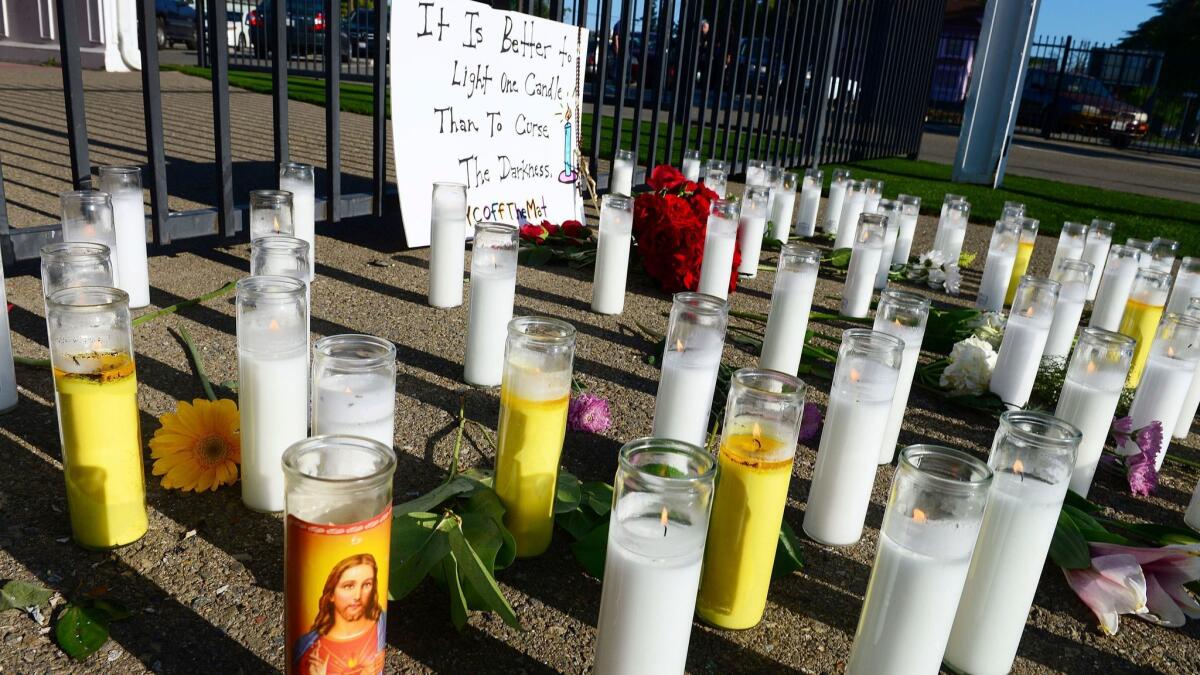Editorial: The allegedly race-based killings in Fresno are a tragically unsurprising part of American life

- Share via
Dylan Roof walked into a South Carolina church two years ago, briefly took part in a prayer session and then methodically shot and killed nine people. Roof is white; the victims were black. Roof told police he wanted to start a race war.
On Tuesday, Kori Ali Muhammad shot three people to death on the street near downtown Fresno, police said, just five days after allegedly killing a Motel 6 security guard. Muhhamad is black; the victims were white. Police have concluded that Muhhamad was motivated by a hatred of white people, and relatives said he may have believed himself a warrior in a race war.
There’s still much to learn about Muhammad’s mental state and his motivations. But racial violence, tragically, has been a constant companion over the long arc of this nation’s history, beginning with the subjugation and killing of native people by European settlers. The United States became wealthy through slavery and the inherent violence that went with it, and though the system ended — violently, in civil war — more than 150 years ago, American society has not fully bridged its racial divide in the years since. Schools remain stubbornly segregated in many parts of the country, not by government edict but by socioeconomics. Neighborhoods too. Twice in a half-century, sections of Los Angeles burned in riots fueled by racial conflict, in which scores of people were killed and millions of dollars’ worth of property was destroyed.
Racial violence, tragically, has been a constant companion over the long arc of this nation’s history
Yes, both Roof and Muhammad used guns that, under the law, they should not have had; the ease with which our gun laws are violated is a frustrating and seemingly intractable scourge of contemporary life. But the persistence of racism, and of racial violence, is even harder to combat with laws. It is a problem of the heart and soul, and of a long brutal history. Though the racially charged tone of the 2016 presidential election may or may not have played a role in recent increases in reported hate crimes, there’s no question that the election tapped into veins of racism that were already here.
Muhammad and Roof are certainly outliers, and perhaps mentally ill as well. But the underlying racial tension that helped fuel their rage and ultimately led to their violent outbursts are part of our culture. It’s easy to glibly fall back on the shopworn cliche that “we need a national discussion of race relations.” But those conversations usually have involved the folks who least need to have them, while those harboring malevolent views of their fellow human beings nurture their hatred as though tending a garden.
Follow the Opinion section on Twitter @latimesopinion or Facebook
More to Read
A cure for the common opinion
Get thought-provoking perspectives with our weekly newsletter.
You may occasionally receive promotional content from the Los Angeles Times.









